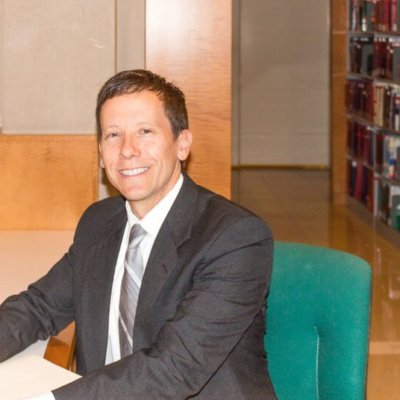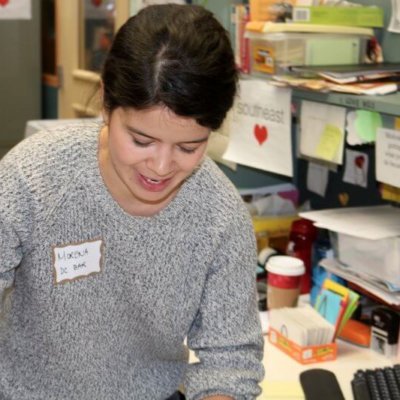A Government Lawyer Keeps Up the Volunteer Habit
By Peter Nye Longtime volunteer Andrew Doyle finds the D.C. Bar Pro Bono Program Advice & Referral Clinic to be a rewarding way to serve people who lack other access to legal services, as well as a great way to learn about different areas of law. The Clinic brings dozens of attorney volunteers East of the River to the offices of Bread for the City on Good Hope Road SE, where they provide brief legal advice and referrals one Saturday morning each month. Andrew, an attorney at DOJ, first decided to participate in the Advice & Referral Clinic when the pro bono coordinator of DOJ’s Environment and Natural Resources Division sought volunteers on a certain Saturday in 2010. Because he had recently heard a Washington Council of Lawyers presentation about the clinic, he volunteered that very Saturday. He was hooked, and ever since, he has volunteered almost every month the Clinic has had an open spot. Andrew finds Clinic work rewarding because—unlike his day job—volunteering allows him to provide prompt service to clients who are individuals. For one client with an insurance problem, Andrew immediately called the insurance company and resolved the dispute on the spot. For clients with custody issues, he has drafted letters to opposing lawyers about compliance with judges’ decrees. Most clients are immensely grateful for his help solving their problems. Of course, some clients cannot achieve the goals they most want to reach. For example, one client wanted to expunge his criminal record and then apply for a job. Andrew could not help him with that particular request, because the Clinic is limited to assisting with civil legal matters. Undeterred, Andrew helped the client develop a strategy for persuading employers that he was worth hiring despite his criminal record. Andrew says that most of his Clinic clients—including this one—who cannot achieve their initial goals are nonetheless thankful to have a lawyer research and analyze their problems. The clients can move forward, even if not in the direction they had initially hoped. Andrew encourages all DC-area lawyers to volunteer at the D.C. Bar Pro Bono Program Advice & Referral Clinic. He acknowledges that the work can be intimidating at first, but reassures volunteers that they will quickly adjust. He also points out that in addition to the satisfaction of helping his clients, he always learns about new areas of law by volunteering at the Clinic, especially because most of the legal issues that arise during Clinic hours are ones that he does not handle at the DOJ. Learning about new areas of law and helping people at the same time make the Clinic an ideal pro bono experience. To learn more about volunteering with Washington Council of Lawyers at the D.C. Bar Pro Bono Program Advice & Referral Clinic, please contact Renee Kostick Reynolds.








